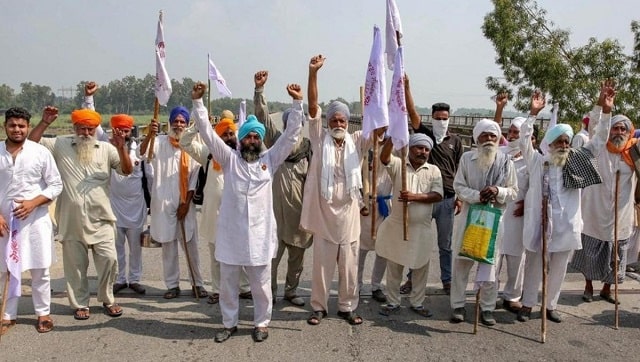The Supreme Court-appointed committee tasked with helping protesting farmers and the Central government in reaching an agreement will function in an ‘impartial’ and ‘unbiased’ manner, members of the panel told Firstpost. The committee faces the tough challenge of trying to find a way out of the stalemate between the government and the farmers, who have been agitating in Delhi since the end of November 2020 . Speaking to Firstpost, Pramod K Joshi, one of the members of the committee, said, “I can assure you that the panel will do its job in an impartial and honest manner. All the four members will now develop the modalities on how to proceed. We will formulate a plan of action and a time frame so that we can submit our report in two months.” Joshi is a former director for South Asia, International Food Policy Research Institute (IFPRI), New Delhi. In his recent views expressed in the media, he has strongly opposed giving legal backing to minimum support prices and has advocated contract farming as a ‘win-win situation’ for all stakeholders. Even as the Supreme Court-appointed committee prepares its plan of engagement, its formation appears to have done little to assuage the concerns of the agitating farmers. The protesters have said that all the members of the committee are in favour of the Centre’s three new laws, and have alleged that the committee is merely a way to ‘ divert attention.’ Responding to these claims, Anil Ghanwat, who is also a member of the panel, told Firstpost, “The well-being of the farmers will be our foremost and only priority. There will be no political motives or biases involved. We will seek to ensure that the law does justice to farmers.” Apart from Joshi and Ghanwat, the other two members of the panel are agricultural economist Ashok Gulati and the national president of the Bharatiya Kisan Union (BKU) Bhupinder Singh Mann. Ghanwat heads the Maharashtra-based Shetkari Sanghatana, a farmers’ organisation which has broadly been backing the laws recently introduced by the government. In fact, on 24 August, 2020, members of the Shetkari Sanghatana across several districts in Maharashtra submitted letters addressed to Prime Minister Narendra Modi at the local tehsildar’s office, welcoming the farm laws. Speaking on this, Ghanwat said, “We (Shetkari Sanghatana) supported the new laws only to an extent; we did not give our complete support to them. We have also demanded that certain amendments should be made to the legislations. Now, the committee appointed by the apex court will also speak to the protesting farmers to understand what they want.” Ghanwat further said, “Speaking for myself, I have agitated for farmers’ rights for 35 years. In all these years, I have never associated myself with any political party.” The Shetkari Sanghatana has demanded that the government should allow states to frame regulations about Agricultural Produce Marketing Committees and contract farming. Further, it has also said that states should be authorised to make their own laws about cesses and development of mandis. Issues such as these, along with many others, are likely to be examined by the panel as it sets out to take into account the demands of various stakeholders. Commenting on what lies ahead for the committee, Ghanwat said, “Through this panel, we have been given a very important responsibility — to play a part in the formulation of the country’s agricultural policy. For this, we will take into account the various opinions that are being expressed. On the one hand, the protesting farmers are essentially seeking some form of economic protection. On the other hand, some other farmers say they want greater freedom. Perspectives of farmers also vary across different regions of the country.” He added, “The panel will examine how farmers’ income can be assured, how to ensure that they are not burdened by debt, and how farmers’ suicides can be stopped.” Notwithstanding the ambitious objectives of the committee, it is clear that the process of bringing about a consensus will be a long haul. Till now, eight rounds of negotiations between the government and the unions taking part in the protests have failed to resolve the ongoing crisis. Another round of talks is slated to be held on 15 January. However, on Wednesday, farmers in Punjab burnt copies of the farm laws at several places on the festival of Lohri as a mark of protest. In this backdrop, the functioning of the Supreme Court-appointed committee over the next two months will have a crucial bearing on the future of the three contentious agriculture-related laws.
Notwithstanding the ambitious objectives of the committee, it is clear that the process of bringing about a consensus will be a long haul.
Advertisement
End of Article


)

)
)
)
)
)
)
)
)



